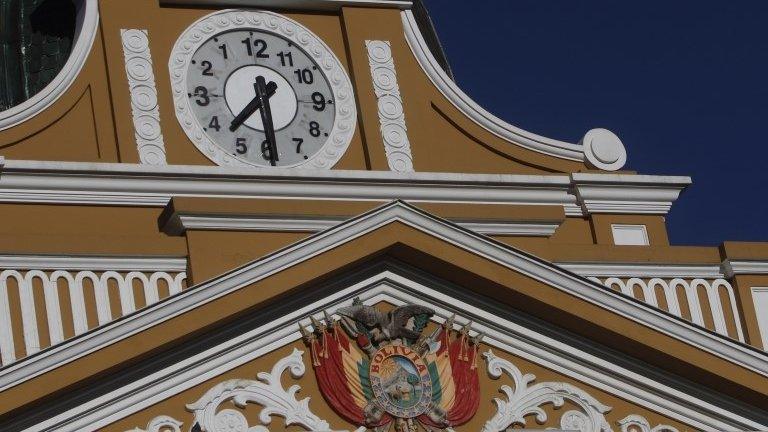World's highest urban cable car proves 'a success'
- Published
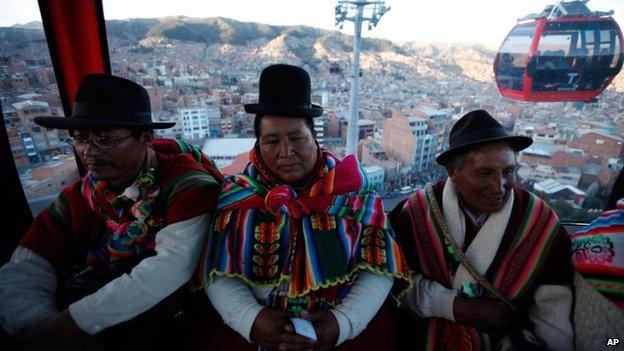
The cabins can hold up to 10 people and reach a height of more than 4,000m above sea level
The state-run company operating the world's highest urban cable car in Bolivia says its first two months in operation have been a success.
Mi Teleferico's chief executive said it had exceeded its goal of making eight million bolivianos ($1.2m; £685,000) in the first 60 days.
The cable car connects the capital, La Paz, with the nearby city of El Alto, high in the Andes mountains.
More than two million people have used it since its inauguration on 30 May.
"We've already surpassed our most optimistic financial forecast," chief executive Cesar Dockweiler said.
The cable car was built by an Austrian company at a cost of $234m and financed by the government of President Evo Morales.
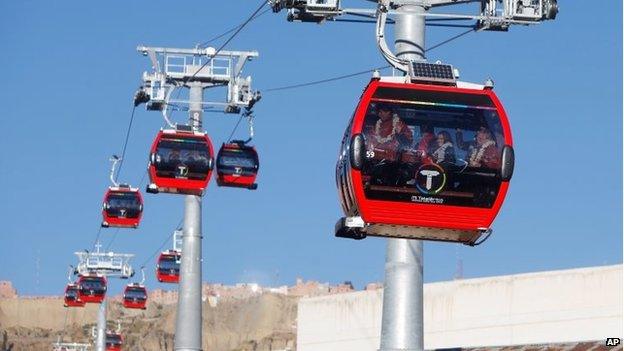
President Evo Morales tried out the new cable car on the day it was inaugurated
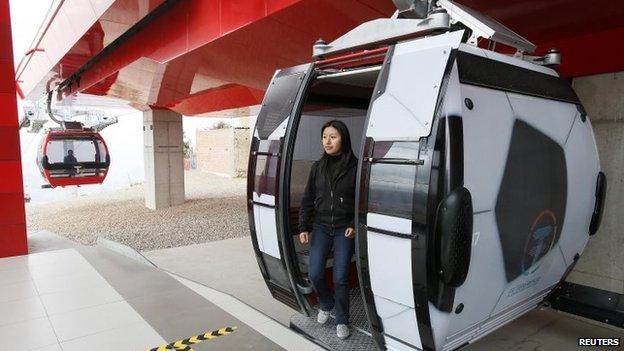
During the World Cup, some of the cabins were painted to look like footballs
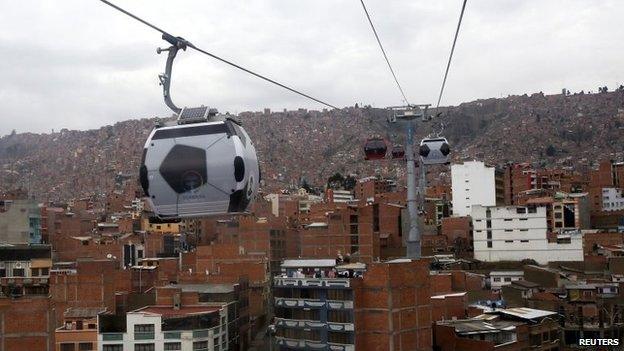
Once finished the cable car line will be 10km (6.2 miles) long
Mr Dockweiler said that in light of the surprisingly good figures it would now take 25 years rather than 40 originally estimated to pay for itself.
The line has made it easy for thousands of people to commute between the two cities in less than 10 minutes.
Two more lines are still under construction. It is hoped they will cut down road congestion.
Each car can carry up to 10 passengers, and according to official projections, once the two additional lines are finished, up to 18,000 people an hour will be able to board the system.
Tickets cost three bolivianos ($0.45; £0.25).
Last month, there was a hitch when passengers were stuck in the cabins in mid-air for 25 minutes during a signal failure.
But Mr Dockweiler assured travellers there had been in no danger at any time.
- Published2 April 2014
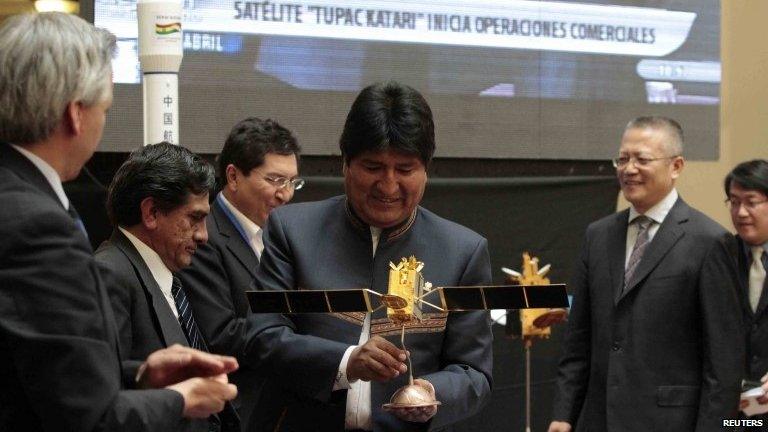
- Published21 June 2014
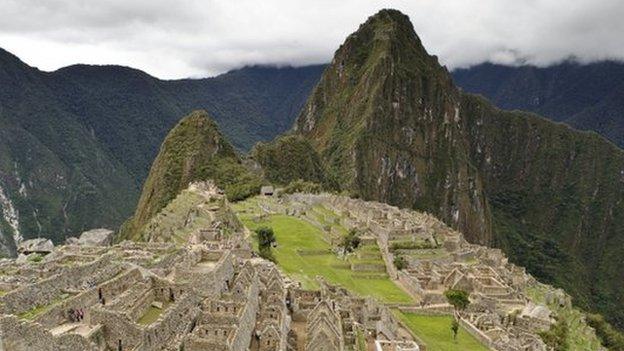
- Published25 June 2014
